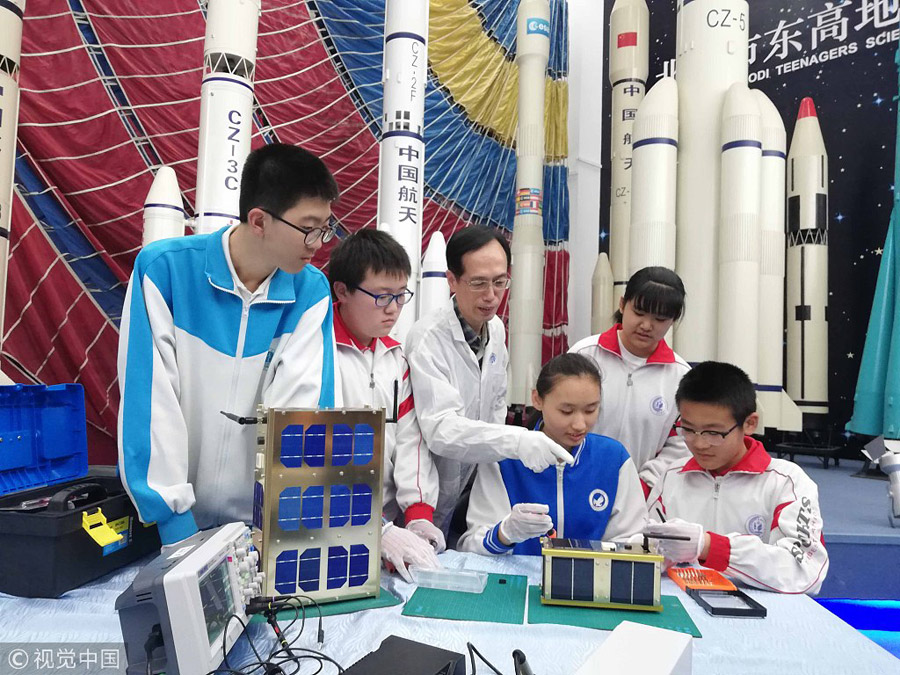BEIJING: China aims to have 15 percent of its citizens become scientifically literate by 2025 and increase this figure to 25 percent by 2035, according to a new national guideline on promoting the popularization of science released on Sunday.
The guideline is the latest influential government document aimed at strengthening public understanding and support of science and technology, which would facilitate China’s transformation into a science and technology powerhouse, officials said.
Released by the general offices of the Communist Party of China Central Committee and the State Council, China’s Cabinet, the guideline said science popularization is as equally vital as scientific and technological innovation, a notion first highlighted by President Xi Jinping in 2016.
The guideline states China will significantly expand its public services for scientific communication and outreach, especially at the local level. It will also call for the whole of society to foster a culture of learning scientific knowledge.
The guideline urges government bodies, academic societies, universities, research institutions, companies and the media to increase the priority of science popularization.
The document incentivizes science professionals to participate more in science communication efforts and share their work in an approachable manner.
Wang Zhigang, minister of science and technology, said in an article on the guideline that it aims to clear many institutional obstacles hindering China’s science popularization efforts.
These measures will ensure the national science popularization effort will have a more precise division of labor, more efficient resource sharing and better use of the complementary advantages among institutions and agencies, he said.
“Science popularization plays a crucial role in nurturing the scientific spirit, fostering new science and technology talent, and creating a social environment conducive for innovation,” he said.
Li Meng, vice-minister of science and technology, said in a news briefing on Monday that the ministry would encourage the creation of quality works in science popularization for frontier sciences with significant public interest, such as carbon technologies, artificial intelligence, gene editing, quantum technologies and high-speed mobile internet.
China’s science popularization budget was 17 billion yuan ($2.4 billion) in 2020, 80 percent of which was from the government. Therefore, Li said, the guideline encourages the private sector to participate in the popularization of science, such as by establishing new science education venues and providing funding.
–The Daily Mail-China
Daily news exchange item






